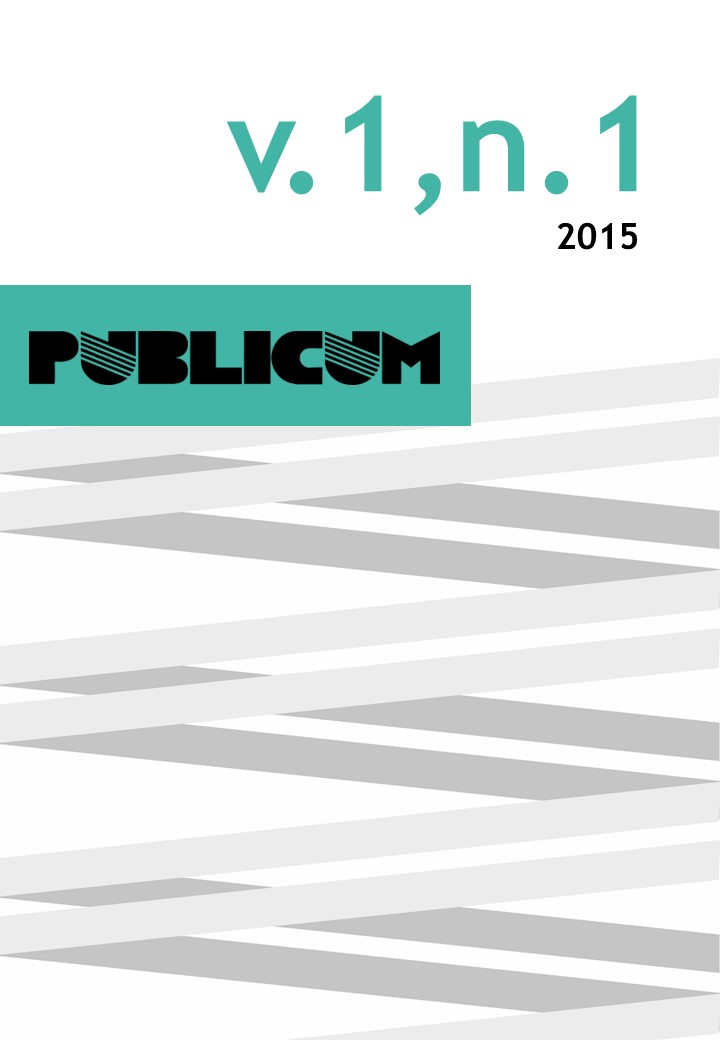Razões religiosas na esfera pública: uma análise da atuação pentecostal no Congresso Nacional
DOI:
https://doi.org/10.12957/publicum.2015.19148Palabras clave:
Liberdade religiosa, democracia, liberalismo, razões públicasResumen
Na pluralidade do mundo moderno, diversos autores debatem acerca de como legitimar políticas coercitivas em uma democracia, já que a referência a uma visão de mundo não atende a todos os grupos sociais. Diante disso, autores como John Rawls propõem que na esfera pública adentrem apenas razões que todos possam razoavelmente aceitar, o que exclui razões religiosas. Outros autores, porém, criticam os pressupostos dessa limitação, além de apontar os benefícios que as razões religiosas podem trazer à esfera pública. Dentro desse debate se insere perfeitamente a atuação do movimento religioso pentecostal na política brasileira: o Congresso Nacional possui hoje uma expressiva bancada evangélica, que faz uso tanto de argumentos laicos quanto religiosos. O presente artigo, portanto, busca reproduzir e criticar esse debate, tanto do ponto de vista teórico quanto do ponto de vista empírico, dividindo-se em três partes: apresentação da teoria exclusivista de John Rawls; críticas a essa teoria; análise do movimento político pentecostal no Brasil.
Descargas
Publicado
Cómo citar
Número
Sección
Licencia
O autor do trabalho declara conhecer e concordar com as regras a seguir:
1) Realizou o trabalho apresentado à revista, sendo inteiramente responsável pelas ideias e conceitos nele emitidos, que não correspondem, necessariamente, ao ponto de vista dos Editores de Publicum.
2) Obedeceu, na realização do trabalho, os princípios éticos aludidos na política de avaliação da revista[RDN1] .
3) Assume a autoria e a responsabilidade pela obra, declarando que ela não infringe quaisquer direitos de propriedade intelectual de terceiros.
4) Responsabiliza-se, integralmente, por danos de natureza moral ou patrimonial que a veiculação da obra venha a gerar a terceiros.
5) Cede à revista os direitos de reprodução, edição e primeira publicação do trabalho em qualquer meio midiático, em particular sob forma digital, em arquivo eletrônico online na internet.
6) Confere aos Editores o direito de modificar o texto apresentado, sem prejuízo de seu conteúdo, quando necessário para uniformizar a apresentação dos trabalhos e para atender as normas de edição próprias da revista.
7) Concorda com a forma final do trabalho aprovada pela revista.
8) Autoriza a divulgação do trabalho nos canais de comunicação da Faculdade de Direito da UERJ.
9) Concorda com a reprodução de pequenos trechos do trabalho em outras publicações da UERJ.
10) Reconhece que, pela cessão e autorizações acima referidas, não receberá remuneração sob qualquer modalidade, tendo estas o caráter de colaboração científica.
11) Tem ciência de que a publicação do trabalho poderá ser recusada caso não considerada conveniente, por qualquer motivo que seja, sendo que tal recusa não gera responsabilidade e/ou ônus de espécie alguma à revista ou UERJ.
[RDN1]Ver COPE.

Publicum está licenciado com uma Licença Creative Commons Atribuição-NãoComercial 4.0 Internacional.

